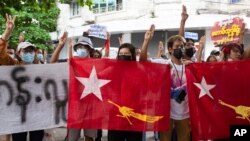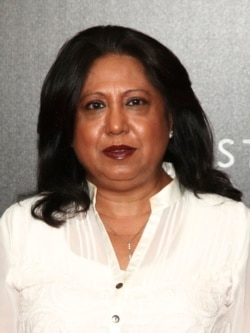A U.N. investigator described an “extremely concerning” pattern of sexual violence by Myanmar’s military in a statement Friday.
Pramila Patten, the U.N. special representative of the secretary-general on sexual violence in conflict, identified a swath of human rights violations by the ruling political power, which seized control of the country in February.
Patten focused particularly on reports of sexual violence against women in detention centers. In her statement, Patten called for not only an immediate end to violence against women but also the ability to independently investigate reports of sexual violence in the country.
“The patterns of sexual violence perpetrated by the Tatmadaw against women from ethnic and religious minority groups, as well as against individuals on the basis of their sexual orientation and gender identity, as documented by the UN Fact-Finding Mission on Myanmar, is extremely concerning,” the statement said.
The Myanmar military, also known as the Tatmadaw, staged a coup in February, overtaking the recently elected government of Aung San Suu Kyi, the leader of the National League for Democracy.
The Tatmadaw, invoking an article from the country’s 2008 constitution, declared a one-year state of emergency, overtaking all three branches of government.
There have since been reports that the military has killed at least 860 people and detained more than 4,800 activists, journalists and opponents of the coup.
In advocating for the prevention of violence against women, Patten pointed out that the Tatmadaw was in direct violation of a 2018 agreement between the then-government of Myanmar and the U.N. that promised to address and prevent sexual violence during conflict.
Patten added that the current political turmoil has disrupted access to health and social services, as many organizations have shut down to avoid being attacked or looted.
“In the midst of this civilian suffering, and the ongoing COVID-19 pandemic, it is essential that appropriate multisectoral services are available to all civilians including non-discriminatory care for survivors of sexual violence, and unimpeded access for humanitarian actors to provide essential lifesaving services,” she said.
Patten ended her statement by applauding the work of the women’s rights organizations in the country that are helping citizens despite the increasingly volatile situation.






